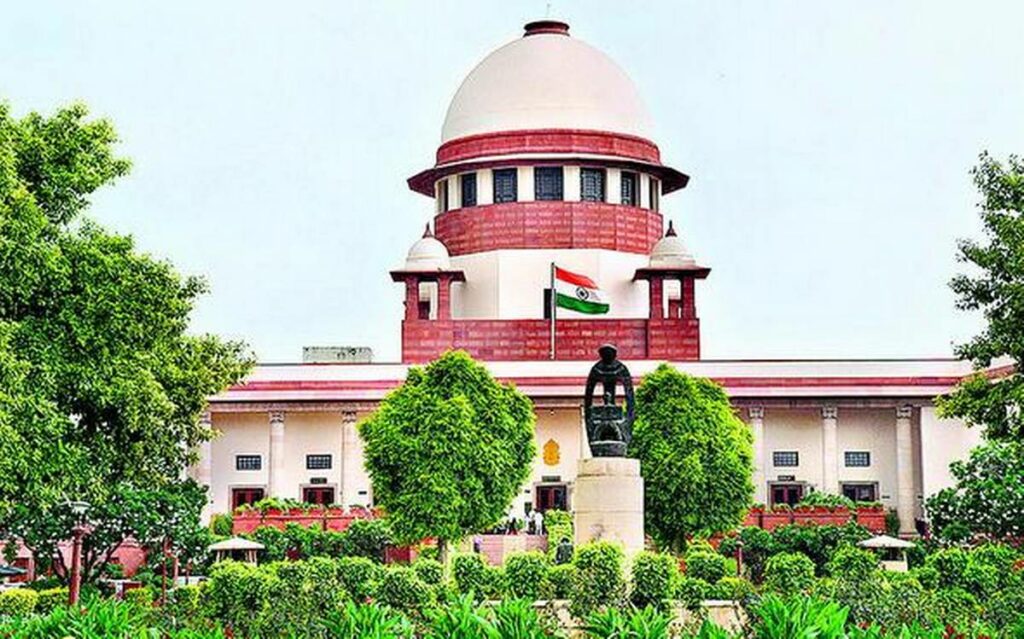Manas Dasgupta
NEW DELHI, Aug 5: The Supreme Court on Friday indicated that it is inclined to strike down an act that discriminate between married and unmarried women in respect of termination of unwanted pregnancies.
A Bench of Justices D.Y. Chandrachud and J.B. Pardiwala said it may loosen the restrictive grip of a 51-year-old abortion law which bars unmarried women from terminating pregnancies which are up to 24 weeks old while it was allowed for married women. The bench felt such prohibition was “manifestly arbitrary and violative of women’s right to bodily autonomy and dignity”.
The bench said it was considering pronouncing a judgment which would put these unmarried women on par with anguished women with less than 20-week-old pregnancies who run the danger of suffering a mental breakdown because they had conceived due to the failure of “family planning devices or methods”.
The Medical Termination of Pregnancy Act, 1971, and the rules of 2003 prohibit unmarried women who are between 20 weeks to 24 weeks pregnant to abort with the help of registered medical practitioners. “An unmarried woman suffers an unwanted pregnancy, why should she be excluded from termination up to 24 weeks if a married woman is allowed it… The danger to life is as much in the case of an unmarried woman as in the case of a married woman,” Justice Chandrachud, asked the Centre, represented by Additional Solicitor General Aishwarya Bhati.
The court noted that the Rules permit termination of pregnancies of up to 24 weeks in seven specific categories, including survivors of rape or sexual assault, minors, in case of physical disabilities and fetal malformation.
The court was not convinced by Ms. Bhati’s arguments that these seven categories represent women who were “extremely vulnerable,” and the intention of the law was “not to allow abortion freely to all, not to liberalise.” Justice Chandrachud said an unmarried woman whose pregnancy was over 20 weeks may have also conceived in a similarly vulnerable situation. “Such an unmarried woman may have been exploited… The source of her pregnancy may also be the same vulnerability that applies to other women… You must have a forward-looking interpretation of the law.”
“Ultimately what does the legislature intend… The legislature has not just used the word ‘husband’. It has also used the word ‘partner.’ So the legislature is not just concerned about women who undergo pregnancy within marriage, but outside marriage too. Medical risk is the same for both married and unmarried women,” Justice Chandrachud observed.
The judge pointed to how Explanation 1 of Section 3 (when pregnancies may be terminated by registered medical practitioners) of 1971 Act allows women who are less than 20 weeks’ pregnant to terminate if they had conceived due to the “failure of a family planning device.” The law presumes that such a pregnancy would be a cause of mental anguish and constitute a “grave injury to the mental health of the pregnant woman.”
Justice Chandrachud said he court was inclined to remove the restrictive limit of “less than 20 weeks” of pregnancy for termination by the registered medical practitioners which would put the unmarried women at par with their married counterparts permitted termination up to 24 weeks. “The expression ‘mental health’ is broad. The failure of a family planning device is presumed to be a cause of mental anguish. But that presumption is made available to clause (a), that is, women who are less than 20 weeks’ pregnant. So if we strike down those words, the Explanation would apply to all… The law will no longer be restrictive,” Justice Chandrachud explained.”
Ms. Bhati was asked to file written submissions and the court posted the case on Wednesday.

